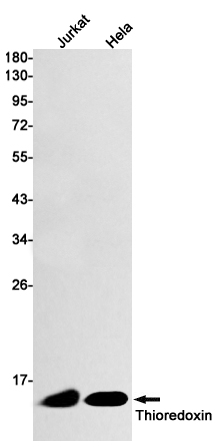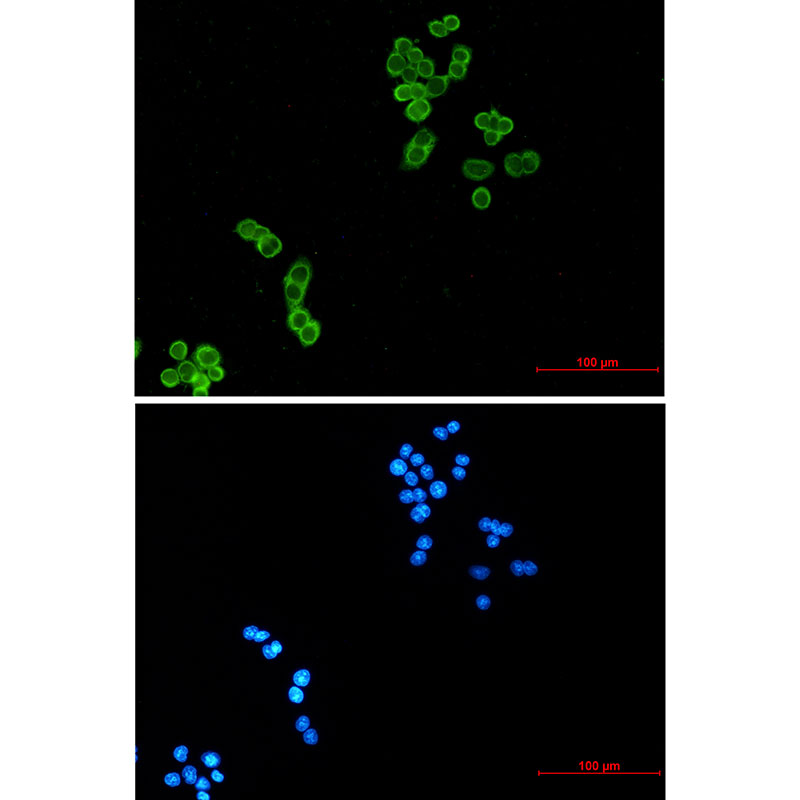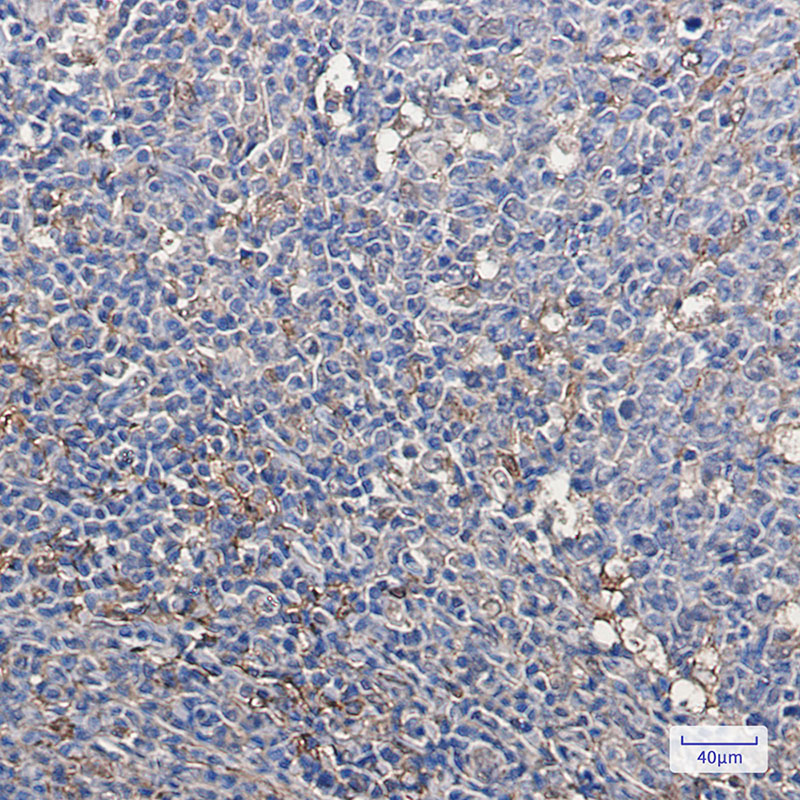


| WB | 1/1000-1/10000 | Human,Mouse,Rat |
| IF | 1/20 | Human,Mouse,Rat |
| IHC | 1/50-1/200 | Human,Mouse,Rat |
| ICC | 1/100-1/500 | Human,Mouse,Rat |
| FCM | 咨询技术 | Human,Mouse,Rat |
| Elisa | 咨询技术 | Human,Mouse,Rat |
| Aliases | TXN; ADF; ATL-derived factor; SASP; Thioredoxin; TRX1; Thioredoxin delta 3; TRX; TXN delta 3; TRDX |
| Entrez GeneID | 7295 |
| WB Predicted band size | Calculated MW: 12 kDa; Observed MW: 12 kDa |
| Host/Isotype | Rabbit IgG |
| Antibody Type | Primary antibody |
| Storage | Store at 4°C short term. Aliquot and store at -20°C long term. Avoid freeze/thaw cycles. |
| Species Reactivity | Human |
| Immunogen | A synthetic peptide of human Thioredoxin/TRX |
| Formulation | Purified antibody in TBS with 0.05% sodium azide,0.05%BSA and 50% glycerol. |
+ +
以下是关于Thioredoxin抗体的3篇参考文献,按作者、文献名称及摘要内容简要列举:
1. **作者:Yoshida, K. 等**
**文献名称**:*"Thioredoxin antibody detection in human hepatocellular carcinoma and its clinical implications"*
**摘要**:研究利用Thioredoxin特异性抗体检测肝细胞癌组织中Thioredoxin的表达水平,发现其过表达与肿瘤进展及患者预后不良相关,提示其作为潜在生物标志物的价值。
2. **作者:Holmgren, A.**
**文献名称**:*"Antioxidant function of thioredoxin and glutaredoxin systems"*
**摘要**:综述Thioredoxin及其还原酶系统的抗氧化机制,强调其通过抗体定位技术揭示在细胞氧化应激调控中的核心作用,并讨论相关抗体在实验模型中的应用。
3. **作者:Matsui, M. 等**
**文献名称**:*"Immunohistochemical analysis of thioredoxin in neurodegenerative diseases using a novel monoclonal antibody"*
**摘要**:开发一种新型Thioredoxin单克隆抗体,用于帕金森病和阿尔茨海默病脑组织分析,发现Thioredoxin在神经元退行区域表达异常,提示其与氧化损伤病理相关。
4. **作者:Miranda-Vizuete, A. 等**
**文献名称**:*"Specific detection of thioredoxin 1 in cardiovascular tissues: antibody validation and functional insights"*
**摘要**:验证一种高特异性Thioredoxin-1抗体在心血管组织中的应用,证明其在动脉粥样硬化模型中Thioredoxin-1的抗氧化保护功能,为治疗靶点研究提供工具。
以上文献涵盖癌症、神经退行性疾病及心血管领域,展示了Thioredoxin抗体在基础研究与临床诊断中的应用。
Thioredoxin (Trx) antibodies are essential tools in studying the redox-regulating protein thioredoxin, which plays a pivotal role in maintaining cellular redox homeostasis. Thioredoxin, a small (~12 kDa) ubiquitous protein, functions as a disulfide reductase by utilizing its conserved CXXC active site to reduce target proteins. It participates in diverse cellular processes, including antioxidant defense, DNA synthesis, apoptosis regulation, and modulation of transcription factors like NF-κB and AP-1. Dysregulation of Trx expression or activity is linked to cancer, neurodegenerative diseases, and inflammatory conditions, making it a key biomarker and therapeutic target.
Anti-thioredoxin antibodies are widely used in techniques such as Western blotting, immunohistochemistry (IHC), and immunofluorescence (IF) to detect Trx expression and localization in tissues or cell lines. They help researchers investigate Trx's interaction with binding partners like thioredoxin-interacting protein (TXNIP) and its role in oxidative stress responses. Polyclonal and monoclonal variants are available, typically raised in rabbits or mice against full-length Trx or specific epitopes. Some antibodies distinguish between reduced and oxidized Trx forms, aiding in redox state analysis. Validated applications and species reactivity (human, mouse, rat) are critical considerations for experimental design. These antibodies have advanced studies in cancer (e.g., Trx overexpression in tumors) and neurodegeneration (e.g., Alzheimer's disease models), providing insights into disease mechanisms and potential treatments.
×